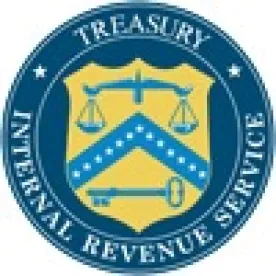The U.S. government and federal agencies ended the 2015 winter holiday season by announcing delays to key provisions affecting employers under the Patient Protection and Affordable Care Act (“ACA”).
Deadlines Extended for ACA Information Reporting of Health Coverage
The deadlines for the ACA health coverage information reporting requirements for the 2015 tax year were extended by several months. Under Section 6055 of the Internal Revenue Code (“Code”), insurers and certain self-insured employers are required to provide covered individuals with information showing that they are enrolled in minimum essential coverage. Under Section 6056 of the Code, applicable large employers are required to provide the Internal Revenue Service (“IRS”) with information to help it determine whether an employer is complying with the employer shared responsibility provisions. These ACA information reporting provisions are met by filing Forms 1095-B and 1095-C, which originally required notices of health coverage to be sent to covered individuals and employees no later than February 1, 2016, with insurer and employer filings to the IRS due by February 29, 2016 (or March 31, 2016, if filing electronically).
With deadlines looming, on December 28, 2015, the IRS issued Notice 2016-4, extending the health coverage reporting deadlines by two or three months. The deadline for furnishing covered individuals and employees with Forms 1095-B and 1095-C has now been delayed to March 31, 2016. The deadline for paper submissions to the IRS by insurers and employers was extended to May 31, 2016, with the deadline for electronic filings extended until June 30, 2016.
ACA Health Coverage Reporting Deadlines for the 2015 Tax Year
|
March 31, 2016 |
Deadline for health insurance issuers and certain self-insured employers to furnish Form 1095-B to covered individuals and employees |
|
Deadline for applicable large employers with self-insured plans to furnish Form 1095-C to employees (if the employers elect not to use Form 1095-B) |
|
|
May 31, 2016 |
Deadline for health insurance issuers and certain self-insured employers to file paper copies of Forms 1094-B and 1095-B with the IRS |
|
Deadline for applicable large employers to file paper copies of Forms 1094-C and 1095-C with the IRS |
|
|
June 30, 2016 |
Deadline for health insurance issuers and certain self-insured employers to electronically file Forms 1094-B and 1095-B with the IRS |
|
Deadline for applicable large employers to electronically file Forms 1094-C and 1095-C with the IRS |
Even with these extensions, employers should continue to prepare the requisite forms for distribution and filing. The IRS will begin to accept fillings in January of 2016. Step-by-step guidance regarding how to complete these forms is available here.
Cadillac Tax Delayed
On December 18, 2016, President Obama signed the Consolidated Appropriations Act of 2016 (“Act”), which postponed the effective date of ACA’s excise tax on high-cost health coverage for two years. The ACA’s excise tax is a nondeductible 40 percent tax on employer-sponsored health insurance plans that offer premiums exceeding $10,200 annually for individuals, or $27,500 annually for families. This excise tax, commonly known as the “Cadillac Tax,” was previously scheduled to take effect on January 1, 2018. The new federal budget delays the Cadillac Tax until January 1, 2020. In response to criticisms of the Cadillac Tax, the Act also makes the Cadillac Tax a tax-deductible expense and instructs the U.S. Comptroller General to conduct a study on suitable benchmarks for age and gender adjustments on the dollar limit provided in the excise tax.



 />i
/>i

